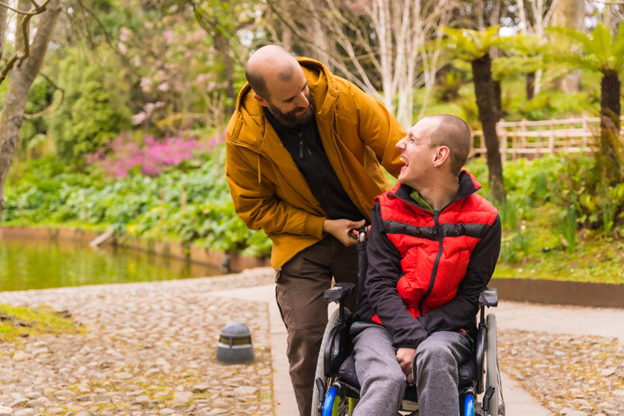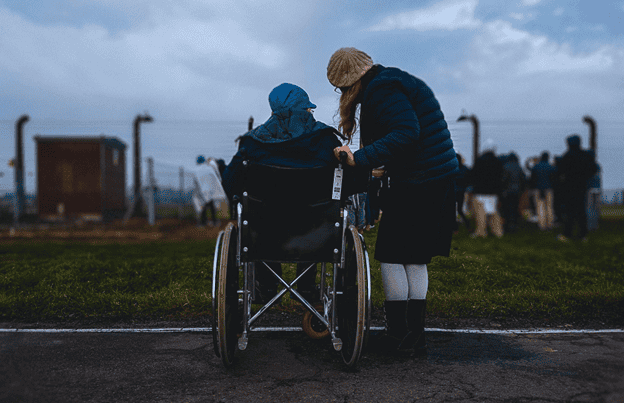
Introduction
The National Disability Insurance Scheme (NDIS) is a complex and comprehensive program that provides support and services to individuals with disabilities. To navigate this journey successfully, it is crucial to understand the key players involved and their respective roles. By familiarizing yourself with the various individuals and organizations involved in the NDIS, you can make informed decisions, access appropriate support and maximize the benefits of the scheme. In this blog, we will delve into the NDIS journey and explore the key players who play integral roles in supporting individuals with disabilities.
National Disability Insurance Scheme (NDIS)
The NDIS is a national program designed to provide support and services to individuals with disabilities. Its primary goal is to empower participants by enabling them to exercise choice and control over their lives. The scheme aims to promote independence, social and economic participation, and improve the overall well-being of people with disabilities.
NDIS Participants
The NDIS participants are individuals with disabilities who meet the eligibility criteria set by the scheme. They are at the core of the NDIS and have the right to access supports and services that cater to their unique needs. Participants play an active role in designing and implementing their NDIS plans, making decisions about their support, and achieving their goals.
Rights and Responsibilities of NDIS Participants
As NDIS participants, individuals have specific rights and responsibilities. They have the right to be treated with respect, have their choices and decisions respected, and receive quality supports that meet their needs. Participants are responsible for actively participating in the planning process, managing their funds, keeping their information up to date, and using their support in a way that aligns with their goals.
NDIS Coordinators
NDIS coordinators play a vital role in assisting participants in navigating their NDIS journey. They are experienced professionals who provide guidance, support, and coordination to help the participants implement and manage their NDIS plans effectively. NDIS coordinators work closely with participants to identify their goals, explore support options, and connect them with relevant services and providers.

Types of NDIS Coordinators and Their Functions
There are different types of NDIS coordinators, including support coordinators and plan managers. Support coordinators assist participants in understanding and implementing their NDIS plans, connecting with service providers, and ensuring they receive the right support. Plan managers, on the other hand, help participants manage their funding by taking care of financial transactions, handling invoices, and ensuring compliance with NDIS guidelines.
Benefits of Engaging NDIS Coordinators
Engaging NDIS coordinators offers several benefits to participants. They provide expert guidance, simplify the complexities of the NDIS, and help participants make informed decisions about their support. NDIS coordinators have in-depth knowledge of the scheme, local service providers, and available resources, ensuring participants can access the most appropriate and high-quality support to achieve their goals effectively.
Support Workers and Service Providers
Support workers are individuals who provide direct assistance and support to NDIS participants. They help participants with daily activities, building skills, accessing the community, and achieving their goals. Support workers can be employed directly by participants or engaged through registered service providers.
Types of Support Workers and Their Services
Support Workers in the NDIS fulfill various roles and provide services tailored to meet the unique needs and goals of participants, promoting independence and well-being. See the following types and the services they provide.
- Personal Care Support Workers assist with activities of daily living such as bathing, dressing, and meal preparation.
- Allied Health Professionals, including physiotherapists, occupational therapists, and speech therapists, offer specialized therapeutic services.
- Behavior Support Practitioners provide strategies to manage challenging behaviors and promote positive behavior change.
- Assistive Technology Specialists assess, recommend, and provide assistive devices and technologies.
- Social and Community Participation Workers support participants in engaging with their communities and pursuing social activities.
- Support Workers can assist with household tasks, transportation, and respite care.
Local Area Coordinators (LACs)
LACs are professionals who provide support and assistance to individuals in accessing the NDIS. They are the key players in the initial stages of the NDIS journey, assisting with eligibility assessments, planning, and accessing appropriate support. LACs are knowledgeable about local service providers and resources, making them valuable sources of information and support.
Navigating the NDIS Access Process with LACs
LACs guide the individuals through the NDIS access process, including eligibility assessments and planning meetings. They help participants understand their rights, responsibilities, and available options within the NDIS. LACs also assist in developing NDIS plans, identifying goals, and connecting participants with suitable support and services.
Support and Assistance Provided by LACs
LACs provide participants with the following support and assistance for a successful NDIS journey:
Information and Resources
LACs offer participants access to a wealth of information and resources related to the NDIS. They provide valuable insights into available support and services, helping participants make informed decisions.
Guiding Participants
LACs assist participants in understanding their plan budgets, ensuring they have a clear comprehension of the funds available to them for support and services.
Connecting with Local Community Networks
LACs help participants establish connections within their local communities, facilitating access to community-based support and networks that can enhance their NDIS experience.
Building Capacity
LACs support participants in building their capacity to self-manage their NDIS plans and engage effectively with service providers. They empower participants to take control of their support and services.
Coordinating Services
LACs play a coordination role, assisting participants in coordinating their support and services across different providers. They ensure a seamless experience and promote effective collaboration among service providers.
Advocacy
LACs advocate for the needs and interests of participants within the NDIS system. They support participants in expressing their preferences and ensuring their voices are heard throughout the NDIS journey.
The National Disability Insurance Agency (NDIA)

The National Disability Insurance Agency (NDIA) is the organization responsible for implementing and overseeing the NDIS. It manages participant funding, approves NDIS plans, and works with participants, providers, and coordinators to ensure the effective delivery of support and services.
Functions of the NDIA in the NDIS Journey
The NDIA provides information and support to participants, coordinating plan reviews, and managing funding. They facilitate access to services, oversee plan implementation, and ensure compliance with NDIS guidelines. The NDIA also collaborates with participants, support coordinators, and service providers to address any concerns or issues that may arise.
How to Engage with the NDIA and Access Support
Participants can engage with the NDIA by contacting their local NDIS office or accessing the NDIA website. The NDIA provides various resources, including information about the NDIS, guidelines, and contact details for support. Participants can access support from the NDIA for any plan-related queries, funding inquiries, or assistance with navigating the NDIS system.
Carers and Family Members
Role and Importance of Carers and Family Members
Carers and family members play a significant role in the NDIS journey as they provide essential support, care, and advocacy for participants. They contribute to the planning process, provide valuable insights into participants' needs, and collaborate with key players to ensure the best outcomes for their loved ones.
Support Available for Carers and Family Members
Various supports and resources are available to carers and family members within the NDIS. These may include carer-specific programs, respite services, counseling, education and training opportunities, and peer support networks. Carers and family members can access these supports to enhance their own well-being and build their capacity in supporting the participant.
Conclusion
Understanding the roles and contributions of key players in the NDIS journey is crucial for participants and their support networks. By engaging with NDIS Coordinators, support workers, LACs, and the NDIA, and leveraging the support available, participants can navigate the NDIS more effectively, access appropriate supports, and achieve their goals. Carers and family members also play a vital role in the journey, and support is available to assist them. Embrace the NDIS journey with knowledge, collaboration, and empowerment, and unlock the full potential of the support and opportunities it offers.






